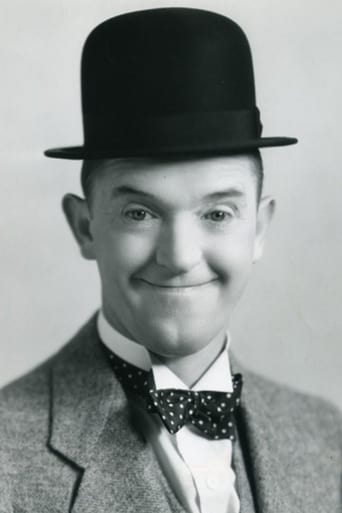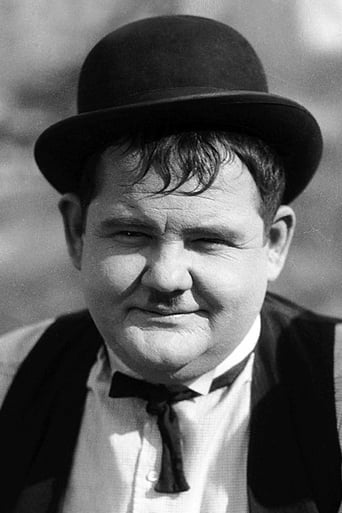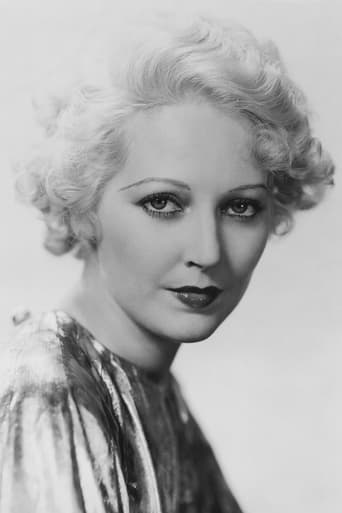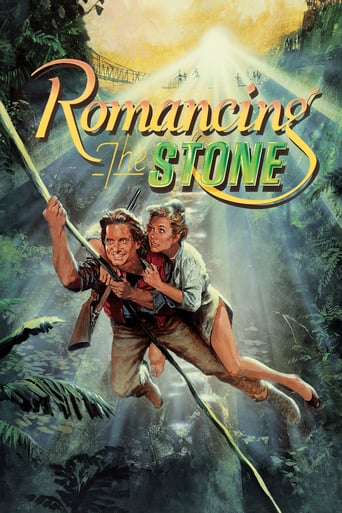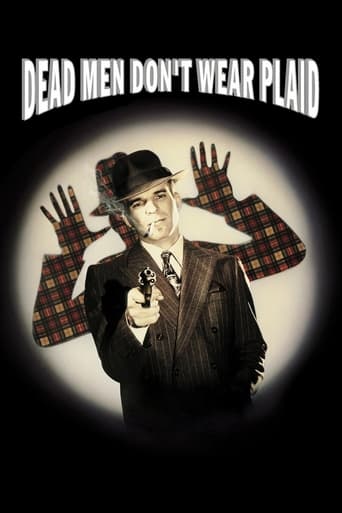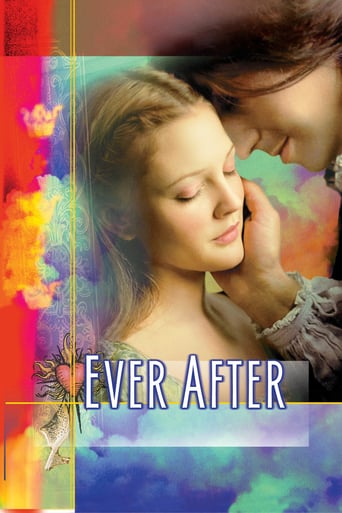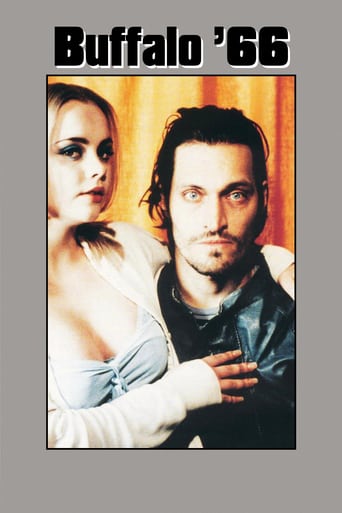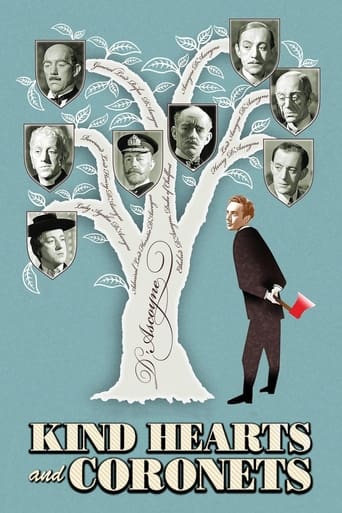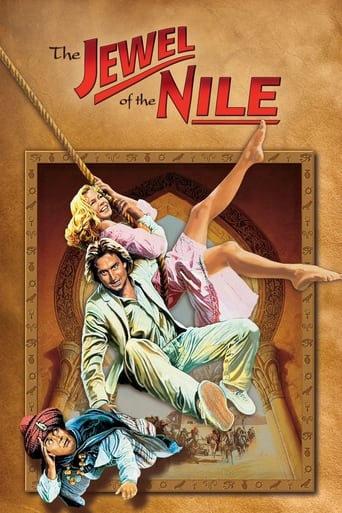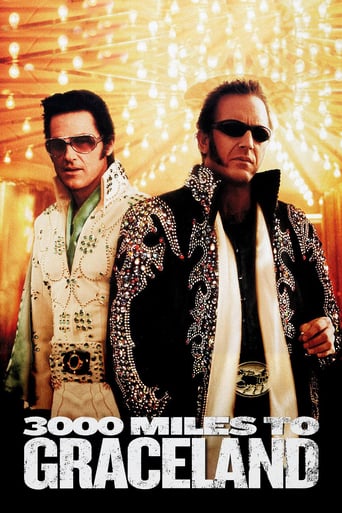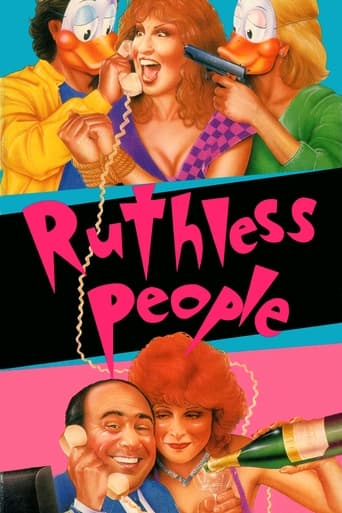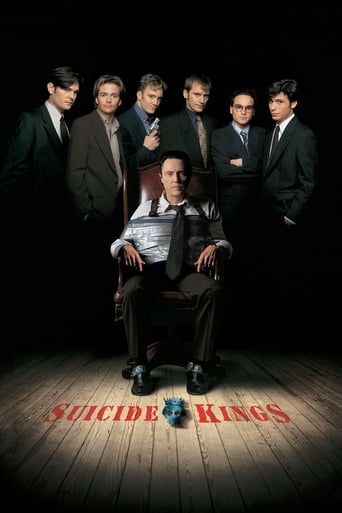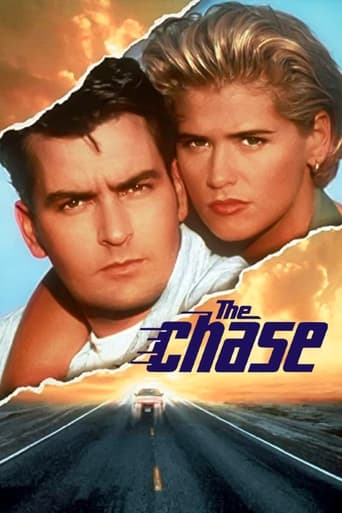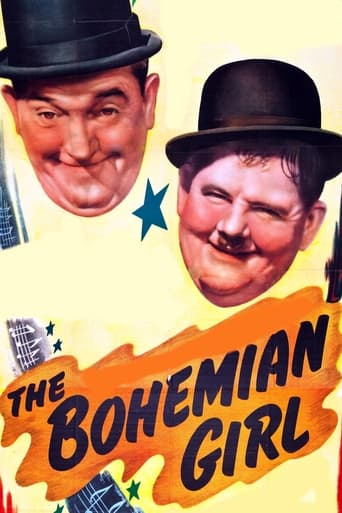
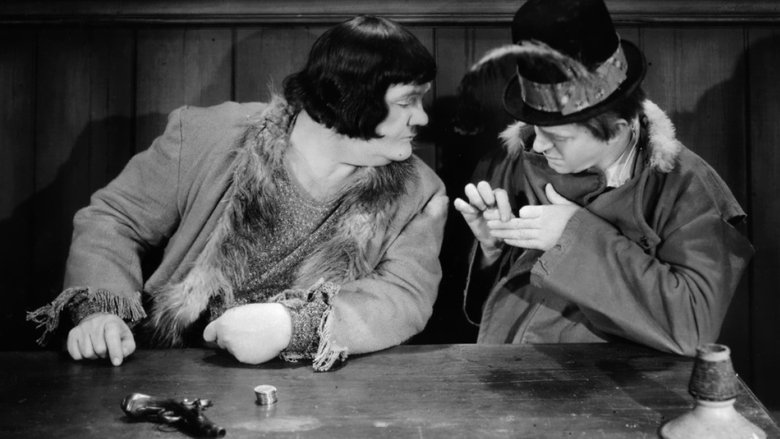
The Bohemian Girl (1936)
Stan and Ollie travel with a band of 18th-century Gypsies holding a nobleman's daughter.
Watch Trailer
Cast


Similar titles
Reviews
While quite stunning to look at with exquisite sets, lavish costumes and some beautiful snowy photography, at times this seems just too long even though it's got a full length plot line and a few musical numbers to pad it out. Oliver is married to the cheating Mae Busch who kidnaps a princess then runs out on Oliver anyway, leaving the young girl (Darla Hood as a child, Jacqueline Welles as a young lady) to be raised by Oliver and his sidekick, Stan Laurel.Moving from shorts into features full time, Stan and Ollie were lucky to have material that could be extended into a full plot line. They had done a similar situation before in the 1933 full length operetta "Fra Diablo", so this needed a fresh take on an old story, having been based upon an opera itself. I would have loved a dance number with the gypsies, as the songs aren't all that memorable. Heading into the Little Rascals series, Darla Hood manages to be cute without being cloying, something that left me cold to her in the shorts. The future Julie Bishop really has nothing substantial to do as the older young lady. Of the supporting players, Busch is a convincing shrew, while James Finlayson is funny with his double takes as a palace guard. The lovable Zeffie Tilbury is, as always, a delight as the gypsy queen, while Mitchell Lewis deliciously sinister as her son. Silent star Antonio Moreno is sensuous as the roving gypsy whom Busch carries on with in front of her own husband. It's pretty enjoyable, but I found myself more entranced by the setting and technical aspects of the film than the actual movie as a whole. Be forewarned, a scene of Stan sawing bars is like nails down a chalkboard.
Hollywood could never make this movie today in this way. The Laurel and Hardy scenes, and they are funny, are simply inserted between scene of a very sincere, if corny, production of Balfe's then still popular Bohemian Girl. It never occurs to the director to make fun of this folk opera, which must have taken real restraint, as it is at its best quite corny and could easily have been made fun of. But Roach doesn't. When Eileen sings the big number, "I dreamt that I dwelt in marble halls," the focus is on her and nothing ridicules what was then still a popular number in pops concerts.That's what fascinated me about this picture. Yes, as with the Marx Brothers'A Night at the Opera those with no interest in opera or its performance history will see the operatic scenes as just annoying filler. But for those of us who do have an interest in such things, it's very interesting to see that there was a time when Hollywood could present opera, even not very good opera, in a sincere and straightforward fashion, relying on the audience to enjoy those segments for what they were.Yes, this is another example of Laurel and Hardy, and an enjoyable one. But it is also a sort of document of how a certain type of opera was once performed and appreciated, and that is not negligible.
Stan Laurel and Oliver Hardy are the most famous comedy duo in history, and deservedly so, so I am happy to see any of their films. Basically this film revolves around the world of the gypsies, and a band of them are camped outside the palace walls of Count Arnheim (William P. Carleton). Amongst the gypsies are pickpockets Stan and Ollie, and while they sneak around snatching purses and wallets, Mrs. Hardy (Mae Busch) and her new lover Devilshoof (Antonio Moreno) kidnap the Count's child daughter Arline (Darla Hood), before running off and leaving Ollie with "Uncle" Stan to raise her. Twelve years have passed, and adult Arline (Julie Bishop, or Jacqueline Wells) dreams of being a princess, still with no idea she is one, and she is captured as a gypsy by the Count's guard Captain Finn (James Finlayson). So Ollie and a drunken Stan (from syphoning wine into bottles) go to rescue her, and dropping her medallion is how she finds out her true heritage, and Ollie and Stan who raised her are saved, well, only after Ollie is stretched and Stan is squashed. Also starring Thelma Todd as Gypsy queen's daughter and Zeffie Tilbury as Gypsy queen, it should be mentioned Todd, a regular in Laurel and Hardy died soon after this film was completed. I think what put me off a little in this film was the ridiculous costumes for Laurel and Hardy, and the songs (being some sort of musical) are a little annoying, especially if they're ongoing. Filled with one or two likable slapstick moments and not too bad classic comedy, it isn't great, but it's a black and white film worth looking at. Stan Laurel and Oliver Hardy were number 7 on The Comedians' Comedian. Okay!
Bohemian Girl won't rank up with the best of the Laurel and Hardy features but it's a fine attempt with a number of wonderful scenes. Only the bland singing and the overly dramatic plot stop this picture from claiming a spot alongside Way Out West and Blockheads as one of the boys finest.The best scenes include a wonderful pickpocketing scene, a crazy wine-drinking sketch and the final image of an overgrown Ollie and a shortened Stan. Some Laurel and Hardy regulars make brief but amusing appearances. Mae Busch is as tyrannical as ever as Oliver's wife. She has the gall to have an affair right in front of her husband and yet Ollie is too much of a gentleman to stop her. James Finlayson has a nice turn as a palace guard adopting that wonderful double take of his to great effect.Bohemian Girl is not the film that you'd show to a first time Laurel and Hardy watcher. It lacks the rhythm of their best pieces. However, for a loyal viewer, it provides a few of the boys finest routines.


